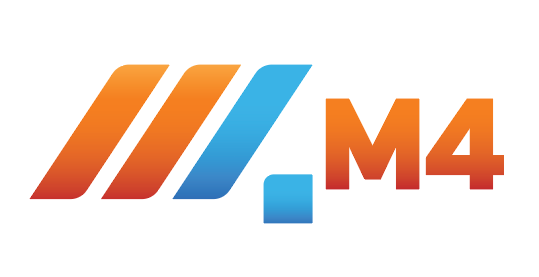THE PROCESS TRIAGE® METHOD
The Process Triage® Method is a proven methodology that connects business leaders with front-line employees to gain insights into the company’s internal processes. By engaging those closest to day-to-day operations, Process Triage identifies limitations in existing systems and helps you develop a clear, actionable plan for improvement.
Industries We Serve
Process Triage offers a structured approach to identify and address workflow inefficiencies, regardless of the industry. By engaging employees in process mapping, companies can develop actionable plans to enhance productivity, reduce costs, and improve overall business performance.
Process Triage in the healthcare industry is a critical methodology that revolutionizes operational efficiency and patient care. By meticulously identifying and eliminating inefficiencies, it ensures strict compliance with ever-evolving regulatory standards while significantly improving the quality of patient care.
This approach uniquely engages front-line healthcare workers, leveraging their invaluable insights to pinpoint pain points, substantially reduce errors, and enhance workflow processes. The ripple effect of these improvements leads to markedly better patient outcomes, increased staff productivity, and a more responsive healthcare system. Process Triage in healthcare not only streamlines administrative tasks but also allows medical professionals to focus more on patient care, ultimately contributing to a more effective and compassionate healthcare environment.
In the rapidly evolving technology sector, Process Triage serves as a catalyst for innovation and operational excellence. This methodology is instrumental in dissecting complex workflows, identifying and eliminating bottlenecks, and optimizing resource allocation across various tech domains.
By fostering a collaborative environment that connects tech leaders with their teams, Process Triage uncovers hidden inefficiencies and facilitates the implementation of data-informed, actionable improvements. This approach not only enhances innovation cycles but also significantly boosts operational efficiency, allowing tech companies to stay agile in a competitive landscape. The result is a more streamlined development process, faster time-to-market for new products, and improved overall performance in areas ranging from software development to IT infrastructure management.
Process Triage offers transformative benefits to the construction and real estate industries by providing a comprehensive framework for mapping out and optimizing complex project workflows. This methodology excels in identifying areas for improvement across the entire project lifecycle, from initial planning to final execution.
By directly engaging employees involved in day-to-day operations, Process Triage uncovers insights that lead to streamlined project management, significantly reduced delays, and consistently high-quality outcomes. This approach not only enhances efficiency but also improves risk management, resource allocation, and stakeholder communication. The result is more timely project completions, better cost control, and increased client satisfaction in an industry where precision and reliability are paramount.
For legal and professional services firms, Process Triage provides a structured and analytical approach to identifying workflow inefficiencies and enhancing client service delivery. This methodology goes beyond surface-level improvements by involving employees at all levels in the process mapping exercise.
As a result, firms can develop clear, actionable plans that not only improve productivity but also significantly enhance client satisfaction. Process Triage in this sector leads to more efficient case management, improved document handling, streamlined billing processes, and better resource allocation. By optimizing these core operational aspects, legal and professional services firms can focus more on delivering high-value services to their clients, ultimately leading to improved reputation and business growth.
In the complex and highly regulated finance and insurance sectors, Process Triage serves as a powerful tool for streamlining compliance processes, mitigating operational risks, and elevating customer service standards.
By meticulously mapping out workflows and identifying pain points, companies can implement effective improvements that not only boost operational efficiency but also ensure rigorous regulatory compliance. This methodology helps financial institutions and insurance companies to optimize risk assessment procedures, streamline claims processing, enhance fraud detection mechanisms, and improve overall customer experience.
The result is a more agile and responsive financial services ecosystem that can adapt quickly to market changes and regulatory updates while maintaining a strong focus on customer satisfaction and operational excellence.
Process Triage proves highly effective in the manufacturing and industrial sectors by providing a systematic approach to identifying bottlenecks and inefficiencies in production processes. This methodology stands out by actively engaging front-line employees, tapping into their hands-on experience to develop actionable plans for improving productivity, reducing waste, and ensuring consistently high-quality output.
By applying Process Triage, manufacturing companies can optimize supply chain management, enhance quality control procedures, improve equipment maintenance schedules, and streamline inventory management. These improvements lead to reduced production costs, increased output, better resource utilization, and enhanced product quality.
Ultimately, Process Triage enables manufacturing and industrial companies to maintain a competitive edge in a rapidly evolving global market.
Educational institutions benefit immensely from Process Triage by significantly improving administrative processes and enhancing student services. This methodology helps identify gaps in workflows, streamline operations, and ensure efficient resource utilization, leading to better educational outcomes.
By engaging staff at all levels, from administrators to faculty, Process Triage uncovers inefficiencies in areas such as student enrollment, course scheduling, resource allocation, and academic support services.
The resulting improvements can lead to reduced administrative burdens, more effective use of educational technology, improved student retention rates, and enhanced overall learning experiences.
Process Triage in education also facilitates better alignment between institutional goals and day-to-day operations, ultimately contributing to a more responsive and effective educational environment.
In the fast-paced world of media and telecommunications, Process Triage plays a crucial role in streamlining operations, enhancing content delivery, and improving customer service.
By meticulously mapping out processes and identifying inefficiencies, companies can implement targeted improvements that ensure timely and high-quality service delivery. This methodology helps media companies optimize content production workflows, streamline distribution channels, and enhance audience engagement strategies.
For telecommunications firms, Process Triage can improve network maintenance procedures, optimize customer support processes, and enhance service deployment strategies. The result is improved operational efficiency, faster response to market trends, enhanced customer satisfaction, and a stronger competitive position in a rapidly evolving industry landscape.
Non-profits and government organizations leverage Process Triage to enhance service delivery and operational efficiency in unique ways.
By involving employees across different levels and departments in process mapping, these organizations can identify and address inefficiencies, ensuring better use of often limited resources and improved stakeholder outcomes.
Process Triage helps streamline grant management processes, improve program delivery mechanisms, enhance inter-departmental coordination, and optimize resource allocation.
For government agencies, it can lead to more efficient public service delivery, improved transparency, and better responsiveness to citizen needs. In the non-profit sector, Process Triage can help organizations maximize their impact by optimizing fundraising processes, improving volunteer management, and enhancing program effectiveness.
For consulting and business services firms, Process Triage is a game-changer in optimizing internal processes, improving client engagement, and enhancing service delivery.
By identifying pain points and developing clear action plans, firms can significantly boost productivity and client satisfaction.
This methodology helps consultancies streamline project management processes, improve knowledge sharing mechanisms, enhance proposal development workflows, and optimize resource allocation across different client engagements.
For business services companies, Process Triage can lead to more efficient service delivery models, improved quality control processes, and enhanced client communication strategies. The result is increased operational efficiency, higher quality deliverables, improved client retention, and a stronger competitive advantage in a knowledge-driven industry.
In the dynamic food and beverage industry, Process Triage helps streamline supply chain operations, improve quality control measures, and enhance customer service.
By mapping out workflows and identifying inefficiencies, companies can implement effective improvements that ensure product quality, food safety, and customer satisfaction.
This methodology can optimize inventory management, streamline production processes, enhance quality assurance procedures, and improve distribution logistics.
For restaurants and food service businesses, Process Triage can lead to more efficient kitchen operations, improved order fulfillment processes, and enhanced customer experience. The result is reduced waste, improved product consistency, faster time-to-market for new products, and increased overall operational efficiency in an industry where quality and speed are paramount.
Process Triage helps retail and consumer goods companies optimize inventory management, streamline operations, and significantly enhance customer service.
By engaging front-line employees, companies can identify pain points and implement actionable plans to improve efficiency and customer satisfaction. This methodology can lead to optimized supply chain processes, improved store operations, enhanced e-commerce platforms, and more effective customer relationship management.
Process Triage in retail can also help in developing more efficient omnichannel strategies, improving product lifecycle management, and enhancing personalized marketing efforts. The result is reduced operational costs, improved inventory turnover, enhanced customer loyalty, and a more agile response to changing consumer preferences in a highly competitive market.
In the complex world of logistics and transportation, Process Triage plays a crucial role in streamlining operations, reducing delays, and enhancing service delivery.
By meticulously mapping out workflows and identifying bottlenecks, companies can develop clear action plans to improve efficiency and ensure timely delivery of goods. This methodology helps optimize route planning, enhance warehouse management, improve fleet maintenance procedures, and streamline customs and compliance processes.
Process Triage can also lead to better integration of technology solutions, improved real-time tracking capabilities, and enhanced customer communication systems. The result is reduced transportation costs, improved delivery times, enhanced supply chain visibility, and increased customer satisfaction in an industry where timing and reliability are critical.
Process Triage significantly benefits marketing and events companies by optimizing project management, improving client engagement, and enhancing service delivery.
By involving employees in comprehensive process mapping, firms can identify and address inefficiencies, ensuring successful and impactful campaigns. This methodology helps streamline creative processes, improve campaign planning and execution, enhance data analytics workflows, and optimize resource allocation across different projects.
For event management companies, Process Triage can lead to more efficient event planning processes, improved vendor management, and enhanced on-site coordination. The result is increased productivity, improved campaign performance, better ROI for clients, and enhanced ability to deliver innovative and effective marketing solutions in a rapidly evolving digital landscape.






.png)
.png)





